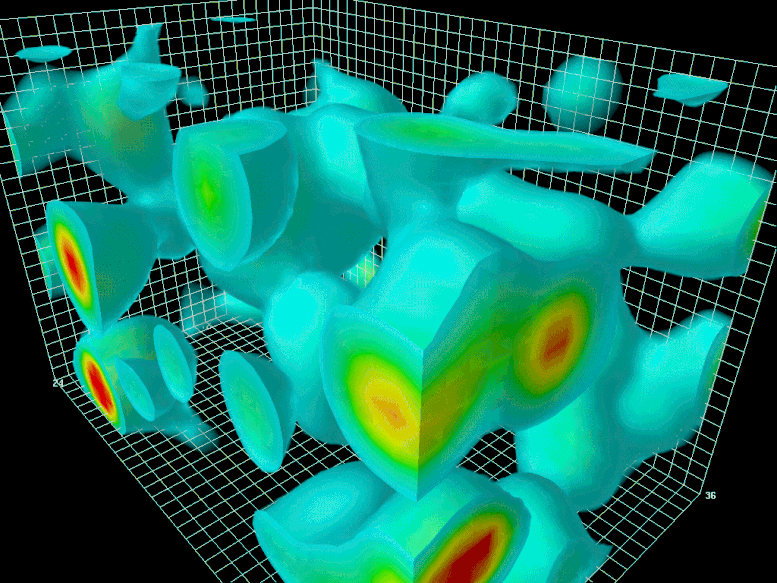Write4U
Valued Senior Member
"Matter in, matter out", what does that even mean? Is that science talk?That's matter in and matter out.
If I said something like that people would have hissy fits.
Forget it, I'm done.
"Matter in, matter out", what does that even mean? Is that science talk?That's matter in and matter out.
Get it right. I said "matter in and matter out.""Matter in, matter out", what does that even mean? Is that science talk?
If I said something like that people would have hissy fits.
Forget it, I'm done.
Creation of matter was the topic wasn’t it?
You said “If matter falls into a black hole and reverts back to its original virtual state, subsequently being expelled from a white hole, then creation is a constant process ‘’.
That’s not creation of matter. That's matter in and matter out. After being knocked about a bit.
So, you are corrected in your idea.
No, we don't. What I was correcting you on was your assessment that my logic never asserted there to be an original creation. My logic never implied that. It also never implied that there was an "original creation Creation".So we agree there was original creation Creation, a beginning. Excellent.
Are you smoking something right now? Are you actually reading what you're typing? Honestly, are you wanting people to take you seriously?If there was a Beginning, then that disqualifies religion because God existed before the beginning, yes?
Which has nothing to do with the thread topic. The thread topic is about Quantum Creation, as defined in the OP. How is this to do with that?So it is science. But what I have been trying to establish is that the beginning must have been "without form" and from that formless condition (chaos) emerged regular patterns, yes?
Excuse me???OK, the Creation part has been solved. Now to Quantum. Any ideas what that is all about?
Have you ever heard of an analogy, Write4U. It's a comparison, taking something different that is comparable to reality in significant ways, so as to highlight things. What I have put in quotes is not word for word what you have said, but it is comparable to how you have approached this thread. You are focusing on the common denominator when it is, frankly, irrelevant, as in the analogy.This has no relation to reality at all. I have not said any of these hysterical exclamations.
It's certainly a waste of time if the analogy is lost on you. More so if you're not even cognisant of what an analogy is, or the purpose it serves.Why do you waste everyone's time in posting untruths?

Suppose we ask: where did spacetime itself arise from? Then we can go on turning the clock yet further back, into the truly ancient “Planck epoch” – a period so early in the universe’s history that our best theories of physics break down. This era occurred only one ten-millionth of a trillionth of a trillionth of a trillionth of a second after the Big Bang. At this point, space and time themselves became subject to quantum fluctuations. Physicists ordinarily work separately with quantum mechanics, which rules the microworld of particles, and with general relativity, which applies on large, cosmic scales. But to truly understand the Planck epoch, we need a complete theory of quantum gravity, merging the two.
We still don’t have a perfect theory of quantum gravity, but there are attempts – like string theory and loop quantum gravity. In these attempts, ordinary space and time are typically seen as emergent, like the waves on the surface of a deep ocean. What we experience as space and time are the product of quantum processes operating at a deeper, microscopic level – processes that don’t make much sense to us as creatures rooted in the macroscopic world.
In the Planck epoch, our ordinary understanding of space and time breaks down, so we can’t any longer rely on our ordinary understanding of cause and effect either. Despite this, all candidate theories of quantum gravity describe something physical that was going on in the Planck epoch – some quantum precursor of ordinary space and time. But where did that come from?
Cycles from almost nothingEven if causality no longer applies in any ordinary fashion, it might still be possible to explain one component of the Planck-epoch universe in terms of another. Unfortunately, by now even our best physics fails completely to provide answers. Until we make further progress towards a “theory of everything”, we won’t be able to give any definitive answer. The most we can say with confidence at this stage is that physics has so far found no confirmed instances of something arising from nothing.
To truly answer the question of how something could arise from nothing, we would need to explain the quantum state of the entire universe at the beginning of the Planck epoch. All attempts to do this remain highly speculative. Some of them appeal to supernatural forces like a designer. But other candidate explanations remain within the realm of physics – such as a multiverse, which contains an infinite number of parallel universes, or cyclical models of the universe, being born and reborn again.
The 2020 Nobel Prize-winning physicist Roger Penrose has proposed one intriguing but controversial model for a cyclical universe dubbed “conformal cyclic cosmology”.
https://scitechdaily.com/the-big-bang-how-could-something-come-from-nothing/#Penrose was inspired by an interesting mathematical connection between a very hot, dense, small state of the universe – as it was at the Big Bang – and an extremely cold, empty, expanded state of the universe – as it will be in the far future. His radical theory to explain this correspondence is that those states become mathematically identical when taken to their limits. Paradoxical though it might seem, a total absence of matter might have managed to give rise to all the matter we see around us in our universe.
So once again you post swathes of text from Google without actually linking it in any way to the thread topic. Without any analysis, commentary, or explanation as to its relevancy to this thread.This is where I am at. I don't know but it's interesting, no?
And it was a very good analogy as a result, thanks. That you either can't see, or don't want to see, that it describes your posting behaviour in this (and possibly other?) threads speaks only about you. And it's nothing to do with people agreeing or disagreeing with the content per se, but all about the context. I.e. the vast majority of what you post is simply irrelevant to the topic of the thread. Or, at best, you have failed miserably to provide explanation of why it is relevant.p.s. Sarkus, an analogy is only as good as the author's understanding of the context.
So what? I haven't used the term in this thread. I can't recall anyone using the term in this thread. Are you perhaps confusing it with equivocation, which I did accuse you of doing, on the word "create"?Equivalence is a mathematical term.
My last post in this thread.

Were you able to produce a post entirely in your own words, explaining your own position on the matters we have discussed?James said:Before I close this thread, I will allow you one more chance to attempt a rational response to the matters that have come up in our recent discussions. I don't expect you to respond to the many questions you have ignored line-by-line; there are far too many of them to make that a realistic expectation. However, I would like to see from you a coherent statement of your own position on the matters we have discussed. Importantly I want to see a post from you that is entirely in your own words. No cut-and-pastes from random internet sites. No wikipedia quotes. No dictionary definitions. Just summarise your own thoughts in your own words.
Do you think you can do that? If not, I will close the thread, since I don't think continuing this is useful or healthy for any of us.
This was in response to my pointing out that Mars rovers do not occur naturally. A bizarre and completely irrelevant response.There are lots of falling bodies.
Keyword "landing".
This is an insult you directed at me, after I posted something about spider webs. Which, of course, have nothing to do with relativity.You're not very good at relativity, are you?
Nothing in this cut-and-paste refutes what I wrote about spider webs.How spider webs achieve their strength
David L. Chandler, MIT News Office
Publication Date: February 2, 2012
https://news.mit.edu/2012/spider-web-strength-0202
Are we clear now?
This cut-and-paste in response to my question "Where did those patterns exist before humans used them?", which referred to a specific statement you made about specific patterns. I did not ask "What are common patterns in the universe?" You did not answer my question. As usual.What are common patterns in the universe?
https://en.wikipedia.org/wiki/Patterns_in_nature#
I wrote "Lots of things are very inefficient in evolution". You have not refuted my statement. Indeed, you have not addressed it. Instead, you just tried to pretend that I was wrong, then you tried to change the topic, as you so often do.But evolution does not stop at inefficiency.
This, in response to my asking "Are you willing to learning anything new about evolution, or are you going to tell me I'm wrong? Or will you just ignore this and keep right on believing what you believe?"Are you going to tell me I am wrong?
This madness, in response to my asking you whether you understand what a differential equation is.Oh, James, yes I understood the process, it's part of mathematics, remember? The question is if you understand the probabilistic relationship between self-organization and spaces, raw materials, and time.
I asked you whether you had learned anything from previous discussions about what a differential equation is. This is your crazy response.Naahh... it's all about "differential equations" and the function applies lies between.
I explained why they aren't doing maths. Rather than addressing what I wrote, you simply repeated your false claim.Yes [birds] are doing maths. We call it "applied mathematics".
You asked me "Isn't the evolutionary process of increasing adaptation to the environment itself a mathematical function?" I told you "It is not."Anything that relates and influences something else in a regular way is a pattern. Patterns are mathematical objects.
Is that no, you don't recall our previous discussions about what a function is?No, I decided that my perspective is more expansive than yours.
There is no "right, from my perspective". There is right, and there is wrong.Unless I'm the one who is right, from my perspective.
